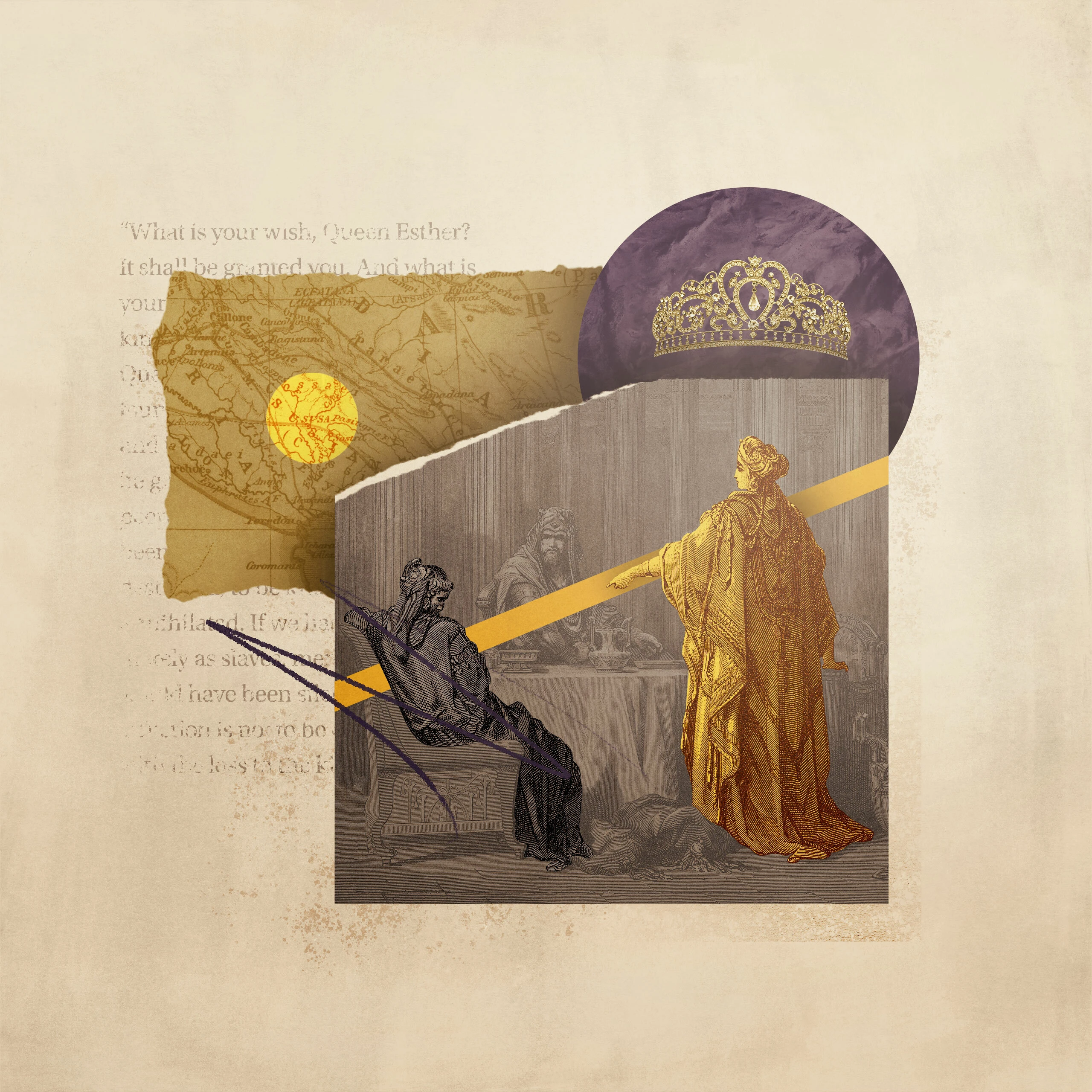3 Things You Should Know About Esther

The book of Esther doesn’t directly mention God’s name. In fact, the story is rather void of religion and piety altogether. The main characters don’t seem to be devout and faithful Jews that are overly concerned with keeping God’s covenant. What can we learn about God and His ways in such a book?
Notwithstanding my love for Esther and her story (one of my daughters is named Hadassah, Esther’s Jewish name), I must admit that there are times in the narrative when I am left wondering where Esther and Mordecai’s true hope lies and whether their actions reflect the faith described in Hebrews 11. Despite these initial impressions, on closer inspection, Esther teaches us deep theological truths that can invigorate the Christian life. Here are three things to know about the book of Esther.
1. God’s Covenant Faithfulness: The book of Esther is a suspenseful narration of the near eradication of God’s covenant promises.
Esther takes place far away from the promised land. Some of the Israelites had returned to Jerusalem from exile after the decree of Cyrus in 539 BC (see Ezra 1:1–4). Some, however, decided to stay in Persia. The reader is quickly introduced to one of those Jews who stayed. She is swiftly swept up into high Persian life, becoming queen after the Persian king had been embarrassed by his prior queen’s insolence.
Through masterful storytelling that weaves in suspense, irony, and satire, the author recounts how a petty, nonverbal gesture ignites a personal dispute between two men (Haman the Amalekite and Mordecai the Jew). This dispute almost results in the annihilation of God’s covenant people (and thus, His promises) through government-sanctioned genocide. It’s only through a bout of insomnia for a foolish king and the momentary shrewdness of a morally compromised queen that the tables are turned at the last minute. The leader of the genocide, Haman, ends up on the gallows that he constructed for his enemy, Mordecai, and the Jews are spared from extermination.
The book reads like a suspense novel, and if you haven’t read the story in one sitting, I encourage you to do so. The plot twists teach us something very important: God is committed to keeping His covenant promises to Abraham, Isaac, and Jacob, and no puppet of Satan—not Pharaoh, not Ahab, not Absalom, not Nebuchadnezzar, not Haman—can thwart God’s covenant commitment to preserve a people for Himself.
2. God’s Invisible Providence: The book of Esther is silent about God to teach us something loudly about God.
The satirical almosts in the book of Esther narratively demonstrate God’s works of providence, which the Heidelberg Catechism describes:
Providence is the almighty and ever present power of God by which God upholds, as with his hand, heaven and earth and all creatures, and so rules them that leaf and blade, rain and drought, fruitful and lean years, food and drink, health and sickness, prosperity and poverty—all things, in fact, come to us not by chance but by his fatherly hand. (Q&A 27)
It might appear that everything in the book of Esther is happening by chance, but the heavenly-minded reader will appreciate that there is a masterful Playwright orchestrating all things for the good of His covenant people—those who love Him and are called according to His purposes (Rom. 8:28). There are no accidents in God’s providential care. Each and every coincidence in the book of Esther is shouting of God’s silent and invisible providence, which governs all His creatures and all their actions (WSC 11). The silence of God in this book teaches a very important lesson: God’s all-powerful governing and preserving all His creatures is too silent to ignore. There is nothing outside His providential purview, even if we can’t see the Playwright directing His play.
3. God’s Persistent Choosing of Deficient People: The book of Esther leaves unanswered many moral questions about its main characters, who are God’s covenant people.
Consistent with Hebrew narrative style, the author of Esther narrates actions without giving an evaluation of every action. This has often led to the book’s two main characters—Esther and Mordecai—being lauded as moral paragons and heroes of faith. The story, however, is muddled with a messy mixture of fear and faith, and the reader isn’t always able to determine which is which. There are many unanswered questions that the reader is left with regarding Esther and Mordecai’s character and actions. A few of these unanswered ambiguities include the following questions:
- Why didn’t Mordecai and Esther return to their homeland (Est. 2:5)?
- Was Esther unconcerned with the dietary laws prescribed by the Lord, or was she merely an inculpable victim of her circumstances (Est. 2:9)?
- Why did Mordecai advise Esther not to reveal her religious heritage (Est. 2:10, 20)?
- Why did Mordecai, instead of protesting, allow his niece to be taken into the king’s palace (Est. 2:8) and into a recently divorced gentile king’s bed chamber (Est. 2:15–18)?
- Was Mordecai’s refusal to bow to Haman, which led to colossal consequences, a petty act or a faithful stand (Est. 3:2)?
- Was Esther acting out of selfishness or wisdom in her initial refusal to plead with the king on behalf of her people (Est. 4:10–11)?
- Did Mordecai, after Esther initially refused his request to appeal to the king to save the Jews, threaten to expose his niece or was he issuing a gracious warning (Est. 4:12–14)?
- Was Esther being deceitfully or righteously shrewd in her dinner requests to the king and Haman (Est. 5:4–8)?
- Was Esther cruelly vindictive or justifiably opportunistic in her request to let the Jews kill three hundred more men and hang Haman’s ten sons from the gallows (Est. 9:13–15)?
While these questions might seem like insurmountable problems—for how can God’s people, who serve as significant players in redemptive history, display such concerning moral ambiguity?—it’s rather a spotlight on the welcome news that God’s salvation does not ultimately depend on His people’s faithfulness or lack thereof. He is faithful to His covenant promises for His name’s sake (see Isa. 48:9–11; Ezek. 20:44). Esther and Mordecai—both by their sinful, fearful actions and their righteous, faithful actions—carry out God’s unthwartable and resolute blueprint to “do good to Zion” (Ps. 51:18). This is the true meaning of Hadassah’s beautiful story. Though a simple “myrtle tree” (the Hebrew meaning of “Hadassah”) who doesn’t get everything right, Queen Esther is the Lord’s instrument to preserve His covenant blessings and to carry out His providential purposes. This much is unambiguous in the story of Esther.
This article is part of the Every Book of the Bible: 3 Things to Know collection.


